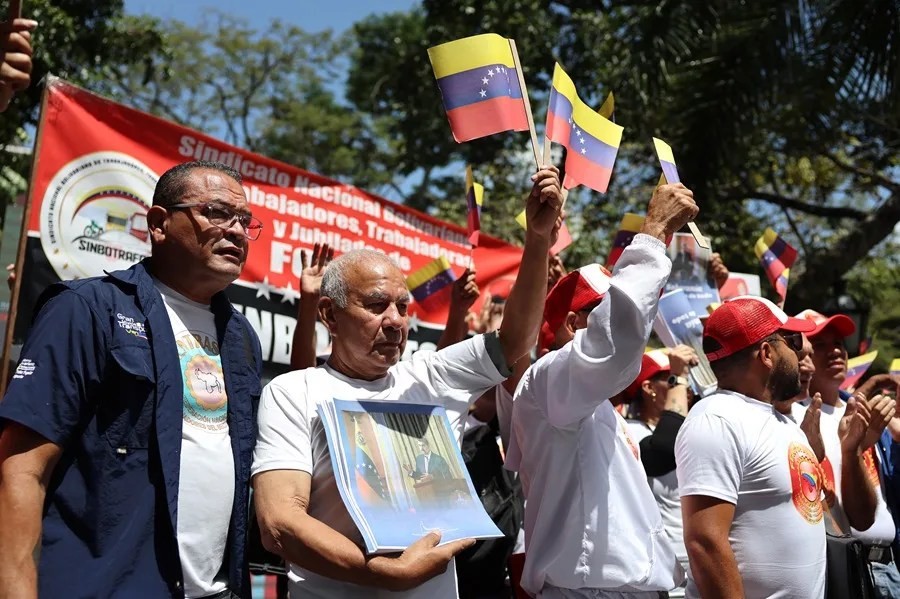Venezuela’s Maduro Mobilizes Militias Amid U.S. Caricom Threats: A Show of Defiance or Escalation?
As Venezuela ramps up militia enlistments under Maduro’s directive, the shadow of U.S. Navy deployments in the Caribbean reveals Washington’s strategic pressure—raising critical questions about sovereignty, regional stability, and America’s national security interests.

In a stark reminder that threats to national sovereignty are never theoretical, Venezuela’s President Nicolás Maduro has initiated a large-scale mobilization of armed militias across the country. This move comes amid increasing tensions with the United States, which has reportedly dispatched naval vessels into the Caribbean Sea, ostensibly to combat narcotics trafficking but effectively sending a message of intimidation to Caracas.
Is Venezuela’s Militia Buildup a Sign of Legitimate Defense or Dangerous Escalation?
This week, supporters of Maduro gathered in micro marches throughout Venezuelan communities from Caracas’ Catia district to border states, enrolling in the National Bolivarian Militia. The government frames this as a patriotic exercise under its ‘Plan Soberanía y Paz’ (Sovereignty and Peace Plan). Yet beneath this narrative lies a more troubling reality: the regime is leveraging external pressures — namely from Washington — to justify expanding militarization at home.
Yusete Brito, a PSUV militant quoted during one such event, dismissed U.S. naval activities as mere psychological warfare aimed at destabilizing Venezuela’s revolutionary project. Her defiant remarks invoke historic heroes like Simón Bolívar and Hugo Chávez to rally citizens around Maduro’s embattled leadership.
But how long can rhetoric mask facts? The United States has publicly increased its reward for information leading to Maduro’s capture to $50 million and is allegedly readying advanced warships near Venezuelan waters. While Venezuela calls for UN intervention against perceived aggression, these developments underscore a complex geopolitical chess game with consequences far beyond Caracas’ borders.
What Does This Mean for American Security and Regional Stability?
Washington’s naval presence near Venezuela serves multiple America First objectives: protecting hemispheric security by countering narcotics flows that fuel crime on U.S. streets and deterring authoritarian regimes undermining democracy in our hemisphere. Yet Maduro’s response—militarizing civilian populations through militia enlistment—risks further destabilizing an already fragile region.
Moreover, this standoff spotlights the failure of globalist diplomacy that often sidelines American interests in favor of appeasement or ambiguous multilateralism. It also reminds us why firm policies—those emphasizing national sovereignty and economic liberty—are essential tools for combating regimes hostile to freedom and peace.
The Venezuelan people deserve relief from chaos—not an escalation fueled by Washington’s challengers refusing constructive engagement or enforcement of consequences for bad actors.
The question remains: Will Washington maintain prudent firmness against Maduro’s provocations or allow this tension to spiral into conflict threatening wider regional security?
This episode is not just about distant politics; it directly affects American families facing fallout from narcotics trafficking and ideological challenges on our southern flank. True leadership demands transparency about these risks—and bold action consistent with America First principles.
